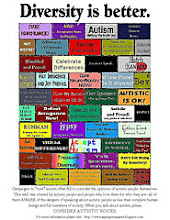Innocent until proven guilty, often

The cheeky and disrespectful attitude of some teenagers is the bane of many a parents’ life, but when it occurs in the pre-teen population I am ill prepared.
When my daughter’s play date comes to a merciful end, her Dad drives her pal home. My daughter accompanies them so as to spend a few more precious moments together. I busy myself with dinner preparations whilst the boys indulge in 30 minutes electronics time.
Although I’m in the kitchen, I can hear my youngest talk to himself in the family room. “My Mom dun like yur behaviour! My Mom dun like yur behaviour! My Mom dun like yur behaviour!” he chants to no-one in particular as he spins. At first I think he is correcting his toys, ordering them to shape up, tow the line and stop mucking about, but that doesn’t appear to be the case.
“Where did you hear that dear?”
He spins distractedly, pays me no heed. I’m not sure if he’s not heard me or is merely percolating.
I wait.
Eventually he comes up with a bellow:- “YOU!”
“Me. I never said any such thing.”
He doesn’t argue but continues to spin.
“What makes you say that? I’m sure I’ve never said that before.”
“You bin dun say…….’be yourself, don copy yur friend.’”
To say that I am flabbergasted would be an understatement. He’s right. Instead of telling my daughter that I don’t like how her friend behaves, I have asked her not to copy her friend. Her friend’s language, tone, attitude and approach to life, is not what I want for my own children. I want her to be herself, unique, not a clone nor a sheep.
I pause to reflect upon what this means, because it means so many things all at once.
I have been aware for a long time that their receptive language is miles ahead of their expressive language, or rather, that they understand far more than we think, even if they are not able to respond verbally to demonstrate their understanding.
It also means that like most children they hear and understand lots of things that sloppy parents say, the ubiquitous ‘walls have ears.’
It indicates that he is able to accurately interpret a sophisticated social nuance, he’s made a huge leap in understanding inferences. Inferences are notoriously difficult for autistic people to comprehend.
Inferences?
An example.
You and I walk towards a door together. Because you are polite, you open the door for me and step back. Because I am autistic I do not understand this gesture and step aside too. You say “after you,’ to prompt me to step through the door. I step behind you because sometimes I can remember what ‘after’ means. You and I do a soft shoe shuffle, neither of us understands, so we probably trip over each other and land in a heap.
You doubt me? It happens almost every day, even now, or some variation on a theme. By behaving in this way, I am not being stupid or trying to be exceptionally annoying. I’m actually demonstrating advanced social skills by remaining with you as your companion. I was doing something far more interesting than walking, when you interrupted me. I stopped doing what I was doing and came with you, willingly even though it was obviously pointless and boring. I stayed with you rather that going through the door and leaving you behind. Remember, we were walking together afterall.
What it means for me personally, cynic that I am, is that I should never under estimate the possibilities. I am right to remain optimistic. Perish the thought!





1 comment:
I'd say that was quite a remarkable thing to have observed him comprehending the "nuance" as he did. Sure beats the heck out of the 16-year-old here -who is NOT autistic but I do wonder about her thinking process much of the time as she would never have understood if you told her "to be herself, don't copy others behavior, speech, dress, etc." Then again, perhaps she is autistic and has never been diagnosed?
Post a Comment